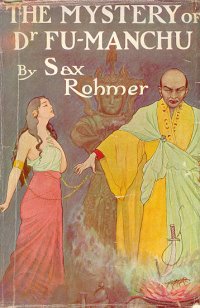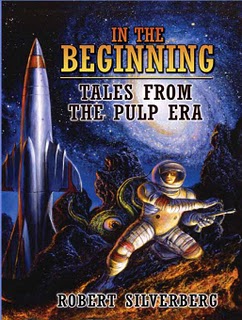 In a post on his blog last week, Canadian science fiction author Robert Sawyer asked “Are the days of the full-time novelist numbered?”
In a post on his blog last week, Canadian science fiction author Robert Sawyer asked “Are the days of the full-time novelist numbered?”
When I broke into the business 55 years ago you could count the number of full-time science fiction writers who could pay the rent and eat regular meals on the fingers of one oddly proportioned hand. Poul Anderson, Gordy Dickson, Robert A. Heinlein, Arthur Clarke, Robert Sheckley, maybe Jack Vance, and….well, who else? Jack Williamson? Perhaps he had begun teaching by then. Asimov was still a college professor who wrote s-f on the side. Ted Cogswell was a professor also. So was James Gunn. Phil Dick was a full-timer, but lived at the poverty level. Sturgeon didn’t do much better. Del Rey dabbled in editing and occasional agenting. Harry Harrison did editing work, wrote comics, whatnot. Leiber was an editor for Science Digest. Jim Blish wrote p-r stuff for the tobacco institute. Cyril Kornbluth worked for a wire service. Fred Pohl edited and agented. Alfred Bester wrote for the slicks and TV. I’m not sure what Phil Klass did for a living — he wasn’t teaching yet — but he couldn’t have lived on the proceeds of what he wrote. Kuttner and Moore — I don’t know; they did venture somewhat into television and mystery novels.Leigh Brackett was a part-time Hollywood writer and her husband Edmond Hamilton earned most of his living writing comic books. Mack Reynolds and Fred Brown had fled to Mexico, where a dime went as far as a dollar did here.
It just wasn’t a field for full-timers. I didn’t really know that, so I plunged right in and made a good living, but I did it by dint of writing and selling a couple of short stories a week, and even then the field vanished from under me by 1958 and I had to turn to all sorts of non-sf writing until things began to revive in the mid-1960s. The same happened to Harlan, and then he got drafted, and when he came out he went to Chicago to edit and on from there to Hollywood.
Now we are back to the same situation that obtained in the golden era of the Fifties — s-f is mainly a field for hobbyist writers, with just a few able to earn a living writing just the real stuff and nothing but. (It is different, of course, for those who write pseudo-Tolkien trilogies, vampire novels, zombie books, and other sorts of highly commercial fantasy.) For a while, in the late 70s and early 80s, the money flowed freely and all sorts of people set up in business as s-f writers full time. I remember Greg Bear, president of SFWA somewhere back in the mid-80s, warning the writers at the SFWA business session not to quit their day jobs, because the good times were just about over; and was he ever right!
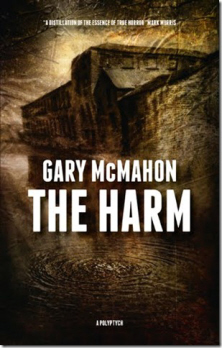 TTA Press, publishers of Black Static, Interzone and Crimewave magazines as well as a few books, has launched a (potential) new line of exclusive novellas, beginning with Gary McMahon’s The Harm:
TTA Press, publishers of Black Static, Interzone and Crimewave magazines as well as a few books, has launched a (potential) new line of exclusive novellas, beginning with Gary McMahon’s The Harm: 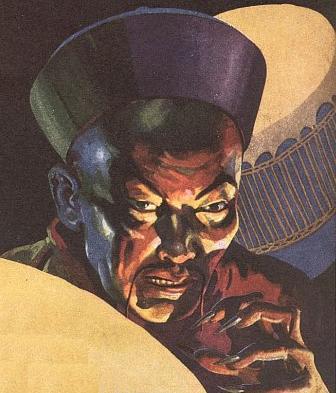
 But what about the single most important aspect of the writing process? Yes, I’m talking about butt-in-chair time. How do you get yourself into a good schedule and motivated to write?
But what about the single most important aspect of the writing process? Yes, I’m talking about butt-in-chair time. How do you get yourself into a good schedule and motivated to write? In the name of journalistic integrity, with stomach fortified by a hearty breakfast, I took myself to a Sunday morning matinee of
In the name of journalistic integrity, with stomach fortified by a hearty breakfast, I took myself to a Sunday morning matinee of  “He conquered love and death…
“He conquered love and death…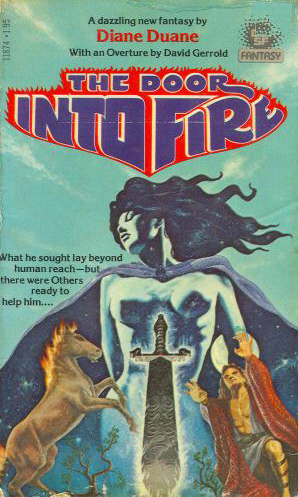 The Door Into Fire, by Diane Duane
The Door Into Fire, by Diane Duane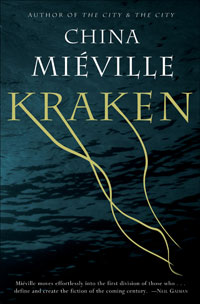 Check out
Check out  In a post on his blog last week, Canadian science fiction author Robert Sawyer asked “
In a post on his blog last week, Canadian science fiction author Robert Sawyer asked “